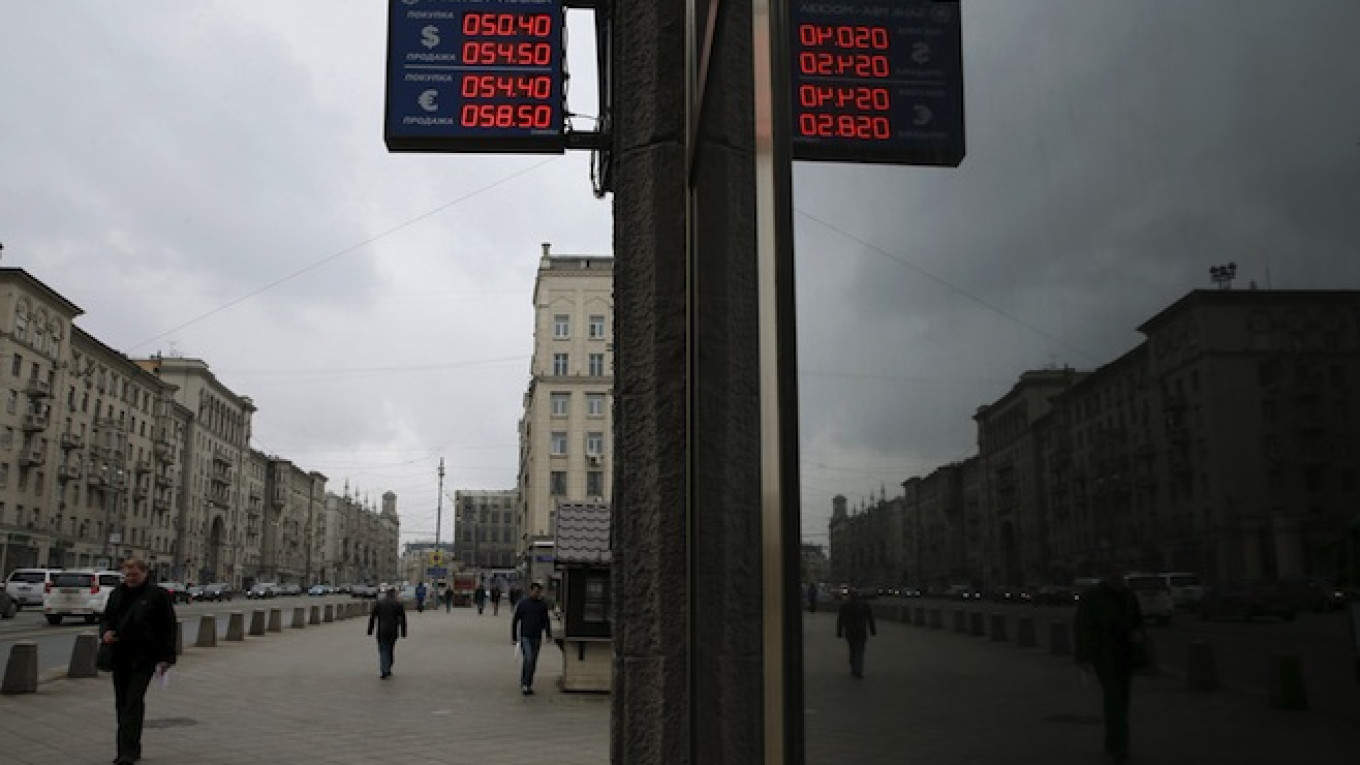Russia's ruble gained on Tuesday as oil climbed to its highest price this year and demand for foreign currency slackened after a four-day holiday weekend when Russian markets were closed.
At 8:20 p.m., the ruble was around 2.3 percent stronger against the dollar at 50.5 and 2.4 percent higher against the euro at 56.6.
Analysts said trading was likely to be volatile and volumes low for the rest of the week, as many traders would only return to work after another holiday weekend on May 9 to 11.
The ruble's continued rise — it is up over 16 percent against the dollar in 2015 — threatens to inflate Russia's budget deficit by reducing oil revenues in ruble terms. Policymakers including Finance Minister Anton Siluanov have warned that the ruble rally is overdone.
"You get the feeling that no one needs foreign currency, everyone bought it in advance and with plenty to spare, therefore there's practically no foreign currency bid," said Pyotr Neimyshev, a forex trader at Otkritie bank.
The ruble had opened as much as 1 percent weaker against the dollar. It soon changed direction, however, and in afternoon trading extended gains after oil prices rose to new highs.
Brent crude oil, an important driver for all Russian assets, was trading at around $68 a barrel on Tuesday evening Moscow time.
Dmitry Polevoy, chief Russia economist at ING Bank, said in a note he expected increased volatility in the ruble in the coming days because of fewer corporate players who give trading its "depth and liquidity."
Russian firms are typically most active on the forex market towards the end of each month, when large exporters convert foreign currency to meet tax payments. The tax period ended last week.
Russian shares also posted healthy gains on Tuesday, fed by the stronger ruble and jump in oil prices.
The dollar-denominated RTS index closed up 4.2 percent to 1,073 points, while its ruble-based peer MICEX gained 2 percent to reach 1,722 points.
A Message from The Moscow Times:
Dear readers,
We are facing unprecedented challenges. Russia's Prosecutor General's Office has designated The Moscow Times as an "undesirable" organization, criminalizing our work and putting our staff at risk of prosecution. This follows our earlier unjust labeling as a "foreign agent."
These actions are direct attempts to silence independent journalism in Russia. The authorities claim our work "discredits the decisions of the Russian leadership." We see things differently: we strive to provide accurate, unbiased reporting on Russia.
We, the journalists of The Moscow Times, refuse to be silenced. But to continue our work, we need your help.
Your support, no matter how small, makes a world of difference. If you can, please support us monthly starting from just $2. It's quick to set up, and every contribution makes a significant impact.
By supporting The Moscow Times, you're defending open, independent journalism in the face of repression. Thank you for standing with us.
Remind me later.


